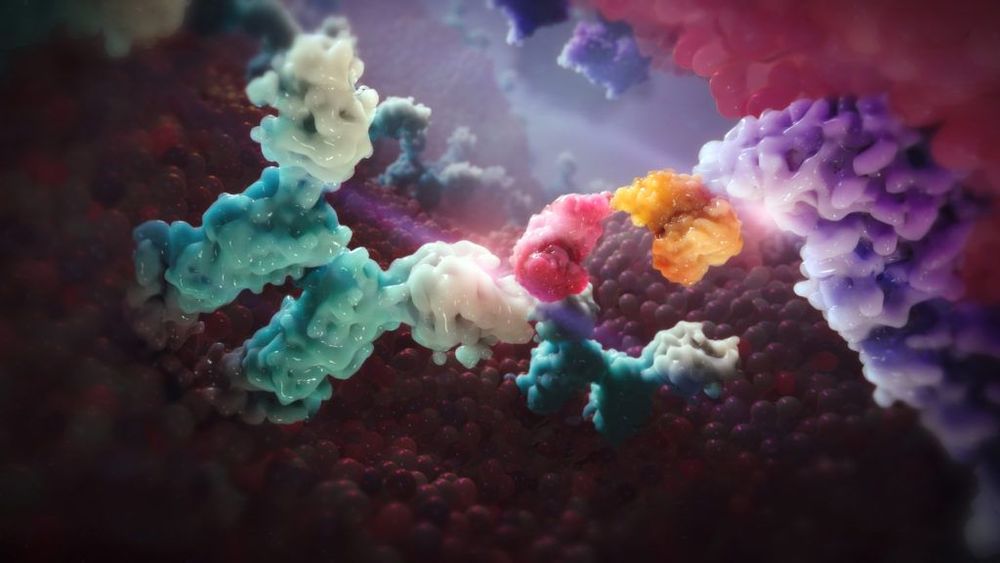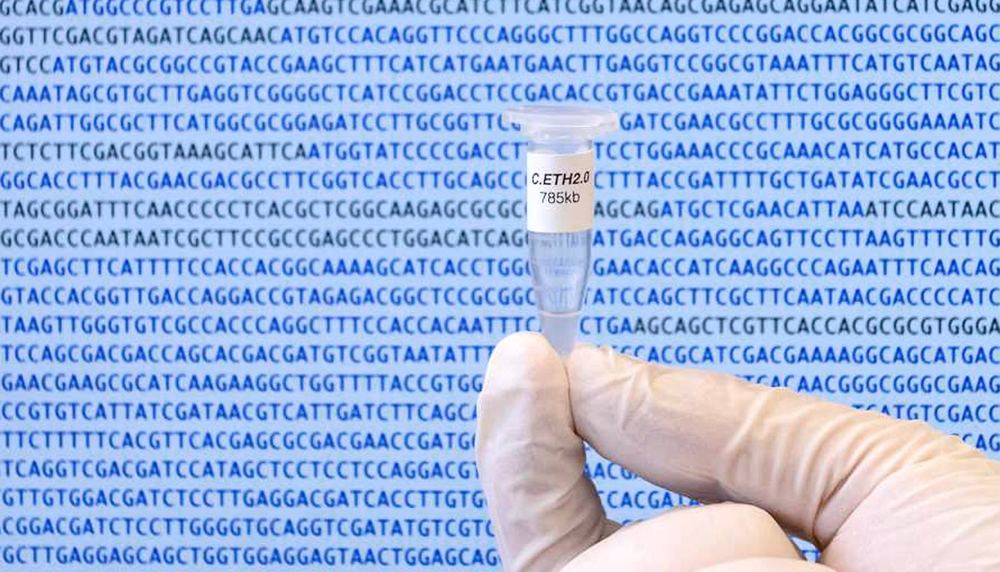Page 8960
Apr 8, 2019
Manfred Eigen, Nobel Prize-winning German chemist and physicist who, after serving in the Wehrmacht, founded two distinct scientific disciplines – obituary
Posted by Genevieve Klien in category: biotech/medical
Manfred Eigen, who has died aged 91, was a phenomenally versatile German chemist and physicist who founded two major scientific disciplines, first in chemical reaction kinetics and later in the development of a molecular approach to evolutionary biology.
He also co-founded two biotechnology companies – Evotec, now a €3.29 billion concern, and Direvo, which was acquired by Bayer Healthcare for $300 million in 2008.
Apr 8, 2019
Memory of older people returned to state of someone in their 20s
Posted by Genevieve Klien in categories: life extension, neuroscience
The memory of older people has been returned to the state of someone in their 20s for the first time by applying electrical stimulation to the brain to reconnect faulty circuits.
Scientists at Boston University in the US have proven it is possible to restore working memory by ‘recoupling’ areas of the brain which have become out-of-sync as people grow older.
Short-term working memory is crucial for everyday life, storing information for around 10 — 15 seconds to allow problem solving, reasoning, planning and decision making, allowing someone, for example, to keep a telephone number in mind while writing it down.
Continue reading “Memory of older people returned to state of someone in their 20s” »
Apr 8, 2019
Dogs Can Sniff out Cancer With Nearly 97% Accuracy, Says Study
Posted by Genevieve Klien in category: biotech/medical
Apr 8, 2019
Parker Solar Probe Completes Second Close Approach to Sun
Posted by Genevieve Klien in categories: health, space
NASA’s Parker Solar Probe has successfully completed its second close approach to the Sun.
At 6:40 p.m. EST on April 4, the spacecraft—traveling at 213,200 mph—passed within 15 million miles of our star, tying its own distance record as the closest-ever ship to the Sun.
The mission team at John’s Hopkins Applied Physics Laboratory (APL) in Laurel, Md., kept a close eye on the spacecraft via the Deep Space Network: They were tuned in for four hours before, during, and after approach, monitoring the probe’s health during the critical moments.
Continue reading “Parker Solar Probe Completes Second Close Approach to Sun” »
Apr 8, 2019
Light-activated wrap designed to fix concrete structures
Posted by Genevieve Klien in categories: humor, materials
Utilizing tape to repair or reinforce concrete structures may seem like some hillbilly fix-it joke, but in fact that’s just what fiber reinforced polymer (FRP) sheets are used for. Now, scientists have developed what they say is a better FRP, that halves the number of people and amount of time required for application.
Apr 8, 2019
This is the first computer-generated genome
Posted by Genevieve Klien in categories: biotech/medical, computing
Scientists report the world’s first fully computer-generated genome of a living organism.
To do so, they used a new method that greatly simplifies the production of large DNA molecules containing many hundreds of genes. They report their work in PNAS.
All the genome sequences of organisms known throughout the world are stored in a database belonging to the National Center for Biotechnology Information in the United States. Now, the database has an additional entry: Caulobacter ethensis-2.0.
Continue reading “This is the first computer-generated genome” »
Apr 8, 2019
This wild new reality-TV show is half Black Mirror and half Truman Show
Posted by Klaus Baldauf in category: entertainment
Imagine Big Brother, but an entire town. Welcome to 2025, a show in Israel that explores the ideas of social currency and transparency–while watching its residents’ every move.
[Photo: courtesy of Keshet International].
Apr 8, 2019
QC — Cracking RSA with Shor’s Algorithm
Posted by Quinn Sena in categories: cybercrime/malcode, encryption, information science
With new advances in technology it all comes down to simple factoring. Classical factoring systems are outdated where some problems would take 80 billion years to solve but with new technologies such as the dwave 2 it can bring us up to speed to do the same problems in about 2 seconds. Shores algorithm shows us also we can hack anything with it simply would need the technology and code simple enough and strong enough. Basically with new infrastructure we can do like jason…
RSA is the standard cryptographic algorithm on the Internet. The method is publicly known but extremely hard to crack. It uses two keys for encryption. The public key is open and the client uses it to encrypt a random session key. Anyone intercepts the encrypted key must use the second key, the private key, to decrypt it. Otherwise, it is just garbage. Once the session key is decrypted, the server uses it to encrypt and decrypt further messages with a faster algorithm. So, as long as we keep the private key safe, the communication will be secure.
RSA encryption is based on a simple idea: prime factorization. Multiplying two prime numbers is pretty simple, but it is hard to factorize its result. For example, what are the factors for 507,906,452,803? Answer: 566,557 × 896,479.
Continue reading “QC — Cracking RSA with Shor’s Algorithm” »
Apr 8, 2019
Senolytics Improve Recovery Following a Heart Attack
Posted by Steve Hill in category: life extension
In a new study, researchers show that the presence of senescent cells is an important contributor to aging of the cardiovascular system, particularly the heart [1].
Senescent cells and senolytics
As your body ages, increasing amounts of your cells enter into a state of senescence. Senescent cells do not divide or support the tissues of which they are part; instead, they emit a range of potentially harmful inflammatory chemical signals, which are known as the senescence associated secretory phenotype (SASP). The SASP can also encourage other nearby healthy cells to also enter the same senescent state.
Continue reading “Senolytics Improve Recovery Following a Heart Attack” »


















